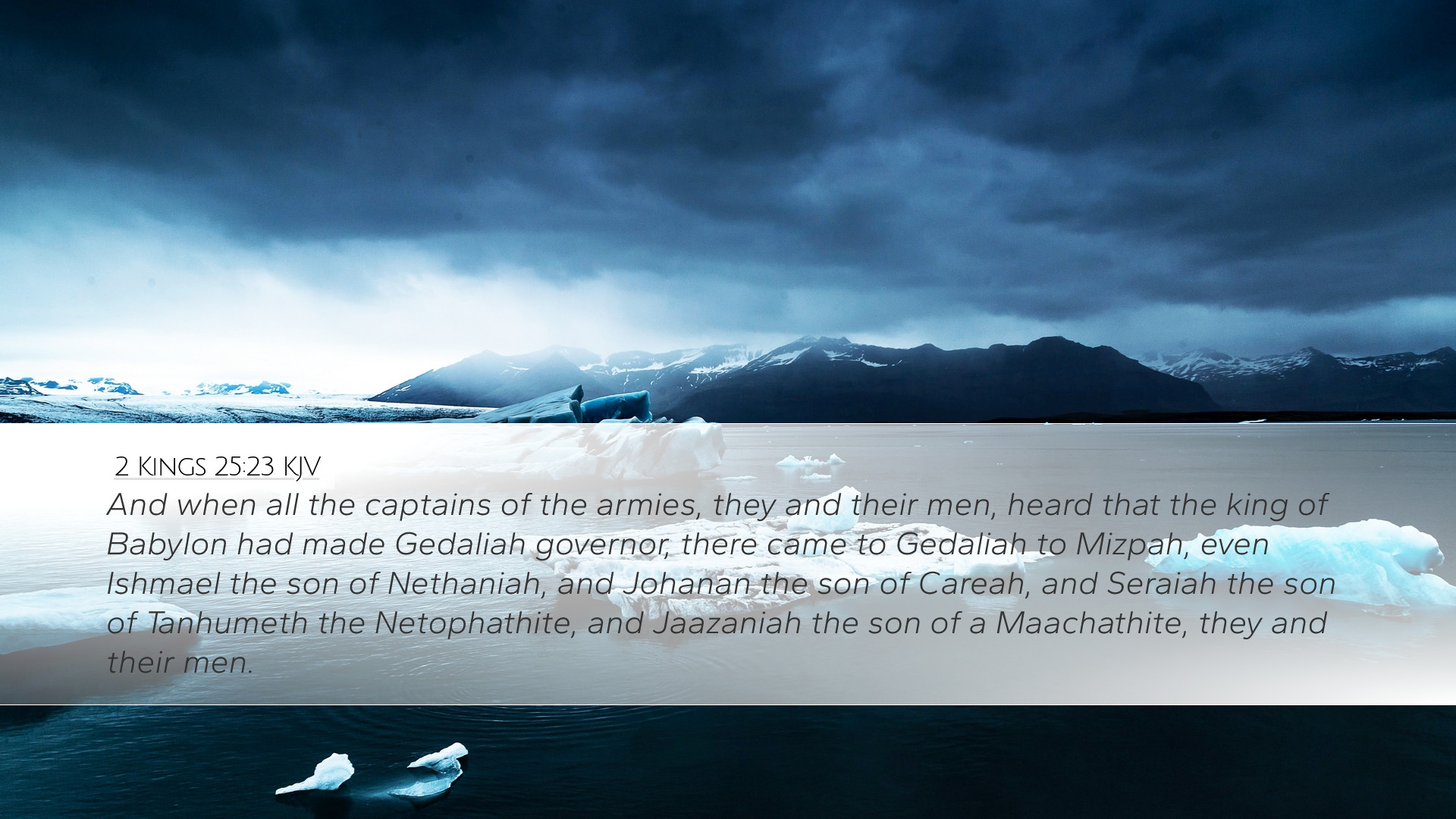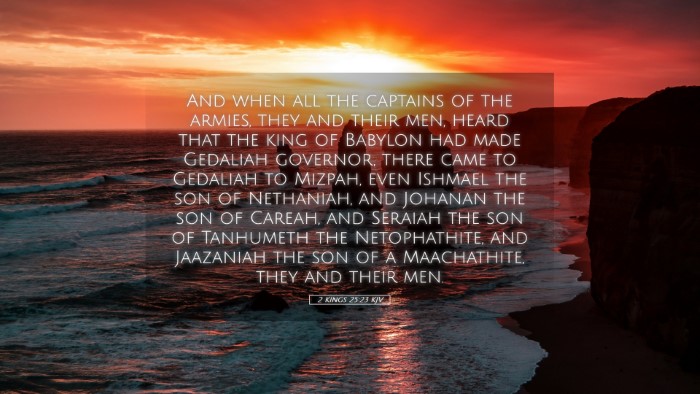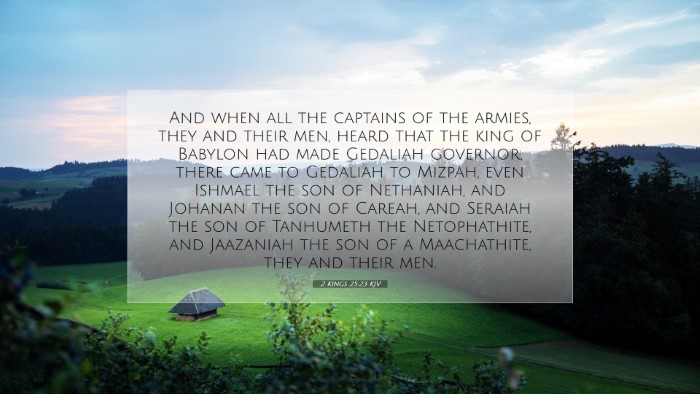Commentary on 2 Kings 25:23
Verse: 2 Kings 25:23 - "And when all the captains of the armies, they and their men, heard that the king of Babylon had made Gedaliah the son of Ahikam governor in the land, they came to Gedaliah to Mizpah, even Ishmael the son of Nethaniah, and Johanan the son of Kareah, and Saraiah the son of Tanhumeth the Netophathite, and Jaazaniah the son of the Maachathite, they and their men."
Context and Background
This verse comes at a critical juncture in the narrative of the fall of Jerusalem. Following the destruction of the city by the Babylonians and the deportation of many of its inhabitants, Gedaliah was appointed governor over the remaining people in the land. This appointment is significant as it sets the stage for the events that follow, indicating the fragile state of power and leadership in a conquered nation.
Insights from Public Domain Commentaries
Matthew Henry's Commentary
Matthew Henry notes the dynamics of leadership and authority in the aftermath of destruction. Gedaliah's appointment is indicative of the hope for stability in a land that has been ravaged. Henry points out that the leaders of the captains came to Gedaliah, representing various factions and interests among the people. This unity under Gedaliah underscores the significance of his role as a mediator for the populace left in Jerusalem.
Henry highlights the character of Gedaliah as a man of integrity and wisdom, suggesting that he was chosen not simply by chance but as an instrument for God’s purposes. His role becomes a pivotal one in the ensuing narrative, as he attempts to consolidate power and maintain peace in a turbulent time.
Albert Barnes' Notes
Albert Barnes elaborates on the characters mentioned in this verse, emphasizing the different motivations that brought these captains to Gedaliah. Each leader had his own following and agenda, highlighting the complexities of governance in a post-exilic society. Barnes suggests that these men recognized the necessity of cooperation in the face of a common adversary: the looming threat of Babylon's power and influence.
Barnes also discusses the appropriation of Gedaliah's authority by these leaders. They sought out Gedaliah not simply to support him, but perhaps also to negotiate or influence him. This reflects a tension between the remnants of Israel’s national identity and the reality of living under Babylonian hegemony.
Adam Clarke's Commentary
Adam Clarke provides a historical context for this verse, explaining that Gedaliah's governance was intended to pacify the Jewish people and maintain order among those who remained. Clarke argues that the groups that came to him were indicative of the broader societal struggles faced by the Israelites. He notes that Ishmael, a descendant of royal lineage, and Johanan, a military leader, represent different facets of resistance and survival within the oppressed community.
Clarke raises questions regarding the motivations of these figures, suggesting that while some may have sought loyalty to Gedaliah, others were likely interested in plotting against the Babylonians. Gedaliah’s eventual fate, influenced by these complex relationships, underscores the precarious nature of leadership in a time of national crisis.
Theological Implications
This verse and its accompanying commentaries offer rich theological insights that can be applicable to various audiences:
- Leadership in Crisis: The appointment of Gedaliah exemplifies the need for wise and discerning leadership during times of upheaval. Pastors and church leaders can reflect on their own roles in guiding congregations through difficult seasons.
- Unity Amidst Diversity: The coming together of various leaders to Gedaliah can serve as a lesson in unity for communities that are often fractured by differing opinions and objectives.
- The Sovereignty of God: The appointment of Gedaliah illustrates God's providential care for His people, even amidst judgment and tragedy. The acknowledgment of God's hand in leadership is essential for both personal faith and ecclesiastical direction.
- The Struggle for Identity: The tension between the remnants of Israel and the Babylonian influence can parallel modern discussions about cultural identity and challenges faced by the church in contemporary society.
Conclusion
In conclusion, 2 Kings 25:23 is a rich text that speaks to the complexities of leadership, the importance of unity, and God's providential care. Through the insights from Matthew Henry, Albert Barnes, and Adam Clarke, we gain a deeper understanding of the historical context and the theological implications for today’s church and its leaders. This narrative invites reflection on our responsibilities amidst crises and the potential for redemption and restoration even in the face of adversity.


